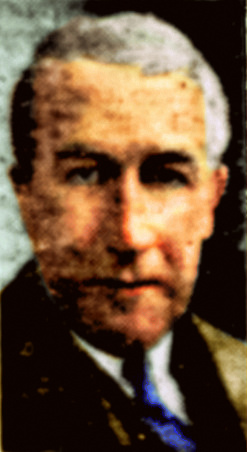
War front observers believe –
Stokes: Big soldier vote likely to upset election polls
Taft irked by War Department’s efficiency in distributing ballots
By Thomas L. Stokes, Scripps-Howard staff writer
Washington –
There is likely to be a rather sizable soldier vote, larger perhaps than generally expected.
This is indicated by the efficiency of the War Department system for distributing ballots, as observed by some who have returned from abroad. Voting is being made easy for the soldiers, much easier, in fact, than it is for civilians here at home.
Consequently, current election polls must be considered conditionally. They do not include the soldier vote, for they have no way to gauge it. President Roosevelt is generally conceded the edge among the soldiers, and the soldier vote may be decisive in a number of large states now counted for Governor Dewey.
Many applications received
The War Department has about completed distribution of postcard applications for ballots, which the soldiers fill out and send back. The Army’s deadline for this job was Aug. 15. Many thousands of postcard applications have been received and distributed through secretaries of state. A third of the states have already begun to mail ballots to the soldiers.
One competent observer who has lived with troops since the invasion of Africa offers an interesting analysis. Although there is no apparently burning political interest among troops, he said, the ease with which they can vote will lead many to fill out their ballots who otherwise would not take the trouble.
Filling out their ballots will be just something else to do something about which they can gossip and joke as soldiers will.
Too perfect for Taft
Senator Robert Taft (R-OH), who led the successful fight for use of state ballots rather than a short federal ballot, seems to be convinced now that there is going to be a substantial soldier vote.
Now that the War Department has worked out an efficient system, Mr. Taft is apparently not happy about it. It seems to be too perfect; one would judge from the tenor of his remarks in the Senate. He harked back to charge that War Department representatives “cooperated 100 percent with the extreme New Dealers and the CIO Political Action Committee in support of a clearly unconstitutional federal ballot carrying no names except those of the candidates for President.”
He said:
The Department has now set up an organization to get out the vote, extending to the smaller units, on a scale which no political organization could possibly duplicate among the civilian population.
Senator’s dander aroused
The Senator’s dander was up, perhaps because he was in the process of eating a little crow. He made his remarks while the Senate was passing legislation relaxing censorship restrictions on books, magazines and moving pictures for soldiers, placed in the soldier vote bill at his instigation.
The zealous effort of Republicans, led by Senator Taft, to keep anything that smacked of propaganda from the troops may turn out, in the end, to their disadvantage.
In trying to bar anything favorable to President Roosevelt, they also barred anything favorable to Governor Dewey.
President Roosevelt is known to every soldier. The Republican candidate is not so well known.
